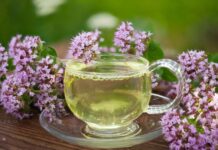Millions of people around the arena use natural health treatments, following a culture that began millennia ago. Many accept as true that herbs are safe because they have been used for many years. Still, researchers from Baylor College of Medicine and Stony Brook University are raising awareness that lengthy-term use of herbal treatments does not ensure their protection. The invited commentary appears in EMBO reports.
Dr. Donald M. Marcus, professor emeritus of medication and immunology at Baylor, and Dr. Arthur P. Grollman, an outstanding professor of pharmacological sciences at Stony Brook College, talk about the scientific proof that the plant Aristolochia can propose aristolochic acid nephropathy (AAN). Human beings with this condition enjoy interstitial nephritis, renal failure, and the urinary tract Soul Crazy cancers.
The authors remark that during Taiwan, in step with the country-wide prescription database, between 1997 and 2003, eight million human beings were exposed to herbals containing Aristolochia. Research on sufferers of renal failure and cancer in Taiwan and China displays that tens of hundreds of thousands of people in those nations are liable to AAN.
In genetically inclined humans, consuming Aristolochia can cause complexes between aristolactam, a compound in Aristolochia, and DNA in renal tissues. These complexes result in mutations within the TP53 tumor suppressor gene, which, in turn, provokes cancer closer to most cancers. Additional studies have shown that this system can also cause the improvement of cancer in the liver and the bladder.
Marcus and Grollman suggest that different herbals and conventional drug treatments are responsible for excessive negative events in Africa and Asia, but epidemiological information is missing in those instances.

Even though Aristolochia has been used as an herbal treatment for more than 2000 years, “the intrinsic toxicities were now not diagnosed, owing, in huge element, to the latency period among an exposure and the onset of symptomatic sickness, and, in component, to genetic determinants that confer susceptibility to handiest approximately 5 percent of these uncovered to this herb,” stated the authors. The lengthy-term medical look atN discovered the association of the sickness with Aristolochia.
READ MORE :
- SC orders Uttarakhand floor test on Tuesday
- Maharashtra to challenge Bombay HC ruling on beef ban
- The Mac App Store needs to support software demos and upgrades
- Security Council demands protection for hospitals and health workers in conflict zones
- ‘Living here will make you fat’ – do we need a neighborhood’s health warning?
Nearly all cancer-causing agents and plenty of pollution require an extended time frame earlier than signs seem. Because of the contamination motive, it is very difficult for laypeople or experts to become aware of a selected compound. At the same time, it changed into taken months or years earlier.
“The records of Aristolochia show that different herbs that have been used for a long term might also have poisonous and carcinogenic compounds,” said the authors. “It’s far prudent to assume that many herbs may additionally incorporate toxic or carcinogenic substances that could cause subsequent health issues for human beings.”
Marcus and Grollman disagree with the sector health employer’s endorsement of conventional herbal treatments on the premise that traditional medicine is of tested best, without citing the shortage of scientific proof supporting the efficacy of natural therapies or their confirmed hazards, as in the case of Aristolochia.
The authors emphasize that their number one problem is “preventing toxicities related to natural remedy and not a specific rejection of traditional healing practices. Natural treatments pose an international threat. We inspire the global health community to take action to examine each long- and brief-time period protection, as well as the efficacy of botanical products in massive use.”





